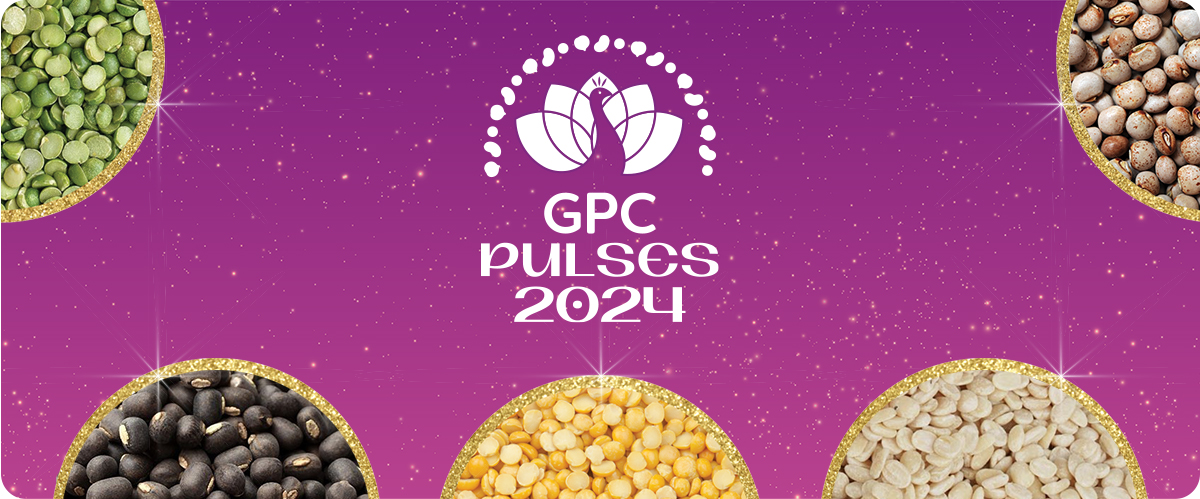January 4, 2024
There’s never been a better time to attend the pulse industry’s #1 global event - not in small part because of its location in India. Looking at the trade situation, we explain why.


In a significant turn of events, India, the world's largest consumer of pulses, has opened its doors to the pulse market, creating an unparalleled opportunity for global exporters and manufacturers. The temporary lifting of restrictions on pea imports, effective until March 31, 2024 is among many reasons why global pulse exporters and manufacturers are turning their attention to the Indian subcontinent in 2024.
In other words, the trade context is right for attending a pulses convention in India’s vibrant capital. Here’s why you should join us for Pulses24 in New Delhi on February 14-17.
The recent lifting of pea import restrictions signifies the first time in six years that India has fully opened to pea imports. The previously stringent measures, including a 50% duty on peas, limited import volumes, and minimum price constraints, have been temporarily removed, creating a unique window of opportunity for exporters to re-enter a market that was once a prime destination for Canadian pea exports.
The announcement of lifted restrictions has triggered a rapid surge in yellow pea prices, soaring to between US$11-12 per bushel. This substantial increase from the previous week has reignited interest in the Indian market, fostering optimism among pulse producers globally and signaling a potentially lucrative period for those willing to explore this fleeting opportunity.
“The announcement of lifted restrictions has triggered a rapid surge in yellow pea prices, soaring to between US$11-12 per bushel.”
Against the backdrop of El Nino-induced effects impacting Rabi crop sowing and resulting in an 8.2% decrease compared to the previous year, India's decision to extend duty-free imports of urad and tur dal until March 31, 2025, showcases a proactive stance to secure a vital protein source. The move is particularly crucial as India heavily relies on imports from countries across the globe.
Pulses24 is set to witness the significant presence of high-level government officials, underscoring the nation's commitment to transforming its pulses industry. Scheduled to be attended by key policymakers, ministers and ambassadors, the convention provides a unique platform for global stakeholders to engage directly with influential decision-makers.
In a move indicative of India's proactive approach towards trade, the nation is actively exploring new partnerships, notably a Memorandum of Understanding (MoU) with Brazil to grow pigeon peas and black matpe. This step, amidst a changing global economic landscape, positions India as a dynamic player keen on fostering international collaborations. The possibility of a trade deal with Brazil adds an extra layer of appeal to the upcoming pulses convention, attracting global stakeholders eager to capitalize on emerging opportunities in this era of evolving trade dynamics.
While the opportunity is substantial, exporters must navigate logistical challenges. Trade contacts estimate a 60 to 65-day period for product transportation from various global locations to India. Shippers must strategize to clear customs within the limited timeframe, making mid-March the critical deadline for product delivery. Strategic planning and collaboration with logistics partners will be essential to capitalize on this time-sensitive opportunity.
India's pulse production has faced various challenges, including agro-climatic conditions, low genetic yield, vulnerability to pests, and a lack of technological advancements. Recognizing the need to address these challenges, the Indian government has set up a committee on pulses, focusing on production, trade, and distribution. For global exporters, understanding these challenges and collaborating with local stakeholders can lead to mutually beneficial solutions. Technological advancements, research collaborations, and knowledge transfer can contribute to enhancing India's pulse production capabilities - and its appetite for imports.
India’s prominence in the global pulse landscape cannot be understated and the resurgent market beckons global pulse exporters to participate in a revitalized and dynamic trade landscape. Despite facing challenges in pulse production, demand remains substantial, providing a lucrative opportunity for global exporters. As the government takes steps to address production challenges, the market is poised for growth, making it an attractive destination for global players in the pulse industry.
Disclaimer: The opinions or views expressed in this publication are those of the authors or quoted persons. They do not purport to reflect the opinions or views of the Global Pulse Confederation or its members.